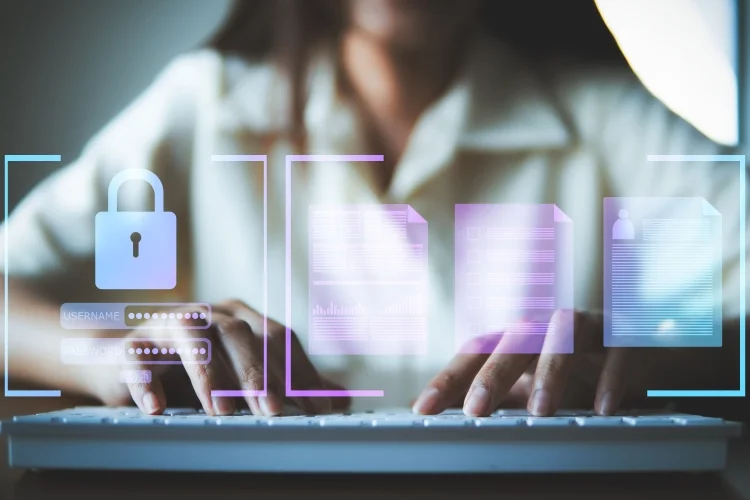by Dan Sullivan
Online safety has never been more vital. Amid rising cybersecurity threats and data breaches, protecting yourself, your devices, your activities, and your information from hackers, scammers, and identity thieves should be necessary.
When browsing, shopping, or working remotely, you must remain aware of potential dangers before taking the necessary precautions to remain safe online. Various security tools like a free VPN or antivirus can offer comprehensive online safety protections, ensuring your data, privacy, identity, and devices remain free from online threats.
It's important to remember that not all security solutions are created equal, and you should select according to your individual requirements and preferences. This blog will discuss the top security tools available today for comprehensive online protection.

In addition, we will share tips for safeguarding social media accounts while emphasizing how user vigilance and responsible online behavior are crucial to maintaining online safety despite the protection provided by security tools.
Contents
Online safety should never be taken for granted. Beyond protecting personal and financial data, online safety involves safeguarding your digital identity and maintaining control over your online presence.
Cybercriminals have become more advanced at exploiting vulnerabilities to gain unwarranted access to sensitive data. By prioritizing online safety, you can reduce the risks of identity theft, financial fraud, and privacy breaches.
Reputable antivirus software should form the cornerstone of any online security strategy, protecting computers or mobile devices against viruses, malware, and other forms of infection. Ensure your chosen solution offers real-time scanning, automatic updates, and powerful malware detection features for optimal performance.
A VPN provides secure internet connections by encrypting them, safeguarding online activities against third-party tracking or potential hackers, masking your IP address to prevent tracking your movements and bypassing geo-restrictions and region-locked content while keeping yourself anonymous.
Establishing strong passwords for every online account is vitally important, yet remembering multiple complex ones may prove challenging.
Thankfully, password managers offer an ideal solution by securely storing all of your existing passwords while automatically creating strong ones for you - making logging in much more efficient and secure than ever!
For added peace of mind when accessing online accounts, Two-Factor Authentication requires users to provide two verification forms before being granted entry, such as one-time passwords, security codes, biometrics, or security tokens.
Using 2FA significantly reduces the chances of unauthorized entry to your accounts and significantly minimizes any risks of misuse or breach.
Social media platforms have become indispensable in our daily lives, but they also present potential security breaches. Here are a few steps that may help secure both your accounts and online transactions:
Review and adjust your social media privacy settings so you can manage who can see your posts, photos, and personal details. This helps increase online safety by restricting content visibility to those you share a trusted connection.
Use caution when clicking links or providing personal data online, mainly via emails and messages.
Phishing attacks often attempt to trick users into sharing sensitive data by disguising themselves as legitimate sources. It is always advisable to verify their credentials prior to sharing information online.
When transacting online, always choose secure payment gateways such as credit cards and trusted payment platforms to conduct your transactions. Never share financial data through unencrypted connections on untrustworthy websites.
Security tools are vital in keeping you and your online presence safe, but user vigilance and responsible online behavior should not be neglected either. Here are a few practices designed to increase online safety:
Remain informed on the latest cybersecurity threats, trends, and best practices by following credible sources that provide news and information related to online security. Awareness is the cornerstone of protecting yourself online.
Keep your operating systems, antivirus software, and applications up-to-date for maximum protection by regularly installing security patches for known vulnerabilities provided through software updates.
Failing to perform updates could expose you to potential dangers that could threaten the integrity of your data or lead to more sophisticated attacks from potential adversaries.
Public Wi-Fi networks may seem convenient, but they also pose security risks. Avoid accessing sensitive data or making financial transactions when connected to public Wi-Fi; use VPN encryption technology if possible for more protection.
Prioritizing online safety in this modern day and age is of utmost importance. By employing the latest security tools available, safeguarding social media accounts and online transactions, and practicing user vigilance, you can help secure your digital footprint while mitigating cyber threat risks.
Stay informed and adapt security measures as technology changes to safeguard a safer online experience!

About Dan Sullivan
Dan Sullivan is a renowned professor and esteemed education writer with a passion for inspiring students and transforming the field of education. With a diverse background in academia and practical teaching experience, he has become a leading figure in educational research and pedagogy.
 |
 |
 |
 |
Check These Out
Let's get FREE Gifts together. There're other Freebies here
AdBlock now to see them all. Click a button below to refresh
 |
 |
 |
 |